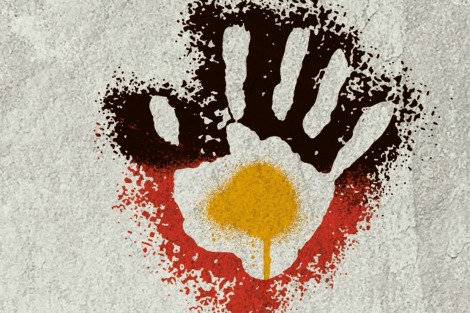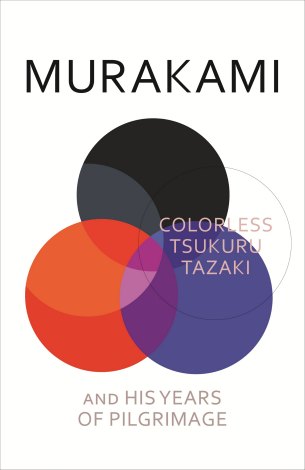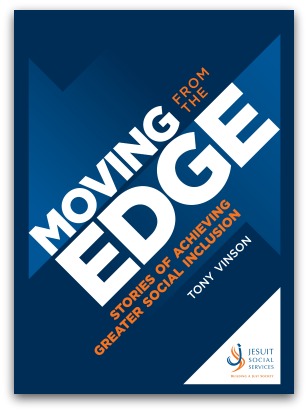Keywords: Moving From The Edge
-

ARTS AND CULTURE
- Jane Williams
- 04 November 2019
1 Comment
Thank God for Bollywood and daytime TV. For the all night partyers and marathon love makers. For the hash brownie bakers, the nut crackers and pot-stirrers ... the drum-beating banjo-twanging wannabe musicians ... the incense wafting up from the first floor through our bathroom vent — frankincense I'm tempted to think.
READ MORE 
-

AUSTRALIA
- Frank Brennan
- 16 October 2015
2 Comments
I acknowledge those Aborigines and Torres Strait Islanders who insist that they have never ceded their sovereignty to the rest of us. I join with those Aborigines and Torres Strait Islanders who hope for better days when they are recognised in the Australian Constitution. As an advocate for modest constitutional recognition for Indigenous Australians, I respect those Aborigines and Torres Strait Islanders who question the utility of such recognition. But I do take heart from President Obama's line in his Charleston eulogy for the late Reverend Clementa C. Pinckney: 'Justice grows out of recognition'.
READ MORE
-

ARTS AND CULTURE
- Maureen O'Brien
- 24 June 2015
4 Comments
What can you do? There's comfort arising from an internal acknowledgement of the fact that, however painful it might be, there are some things beyond our control. But certain role models in our community - including anti domestic violence campaigner Rosie Batty - have demonstrated through their actions that it is possible to move beyond a seemingly all pervasive sense of resignation.
READ MORE 
-

ARTS AND CULTURE
- Barry Gittins and Jen Vuk
- 01 August 2014
3 Comments
In his native Japan, the name Haruki Murakami has immense currency. In the first week of its release his latest novel Colourless Tsukuru Tazaki and His Years of Pilgrimage sold more than one million copies. Coming from a traditional culture where assimilation and social order has been a historical imperative, perhaps the book's themes go beyond the intimate to acknowledge the soul-eating, conformist nature of society.
READ MORE 
-

ARTS AND CULTURE
- Barry Gittins and Jen Vuk
- 06 June 2014
2 Comments
When journalist and activist Barbara Ehrenreich was a young woman she came face to face 'with something vast, terrifying and unknowable'. We mustn't take for granted the courage this admission took coming from such a committed atheist. While noting science can 'dismiss anomalous 'mystical' experiences', she wrestles her discontent into submission by boldly declaring that it 'is not unscientific to search for what may not be there'.
READ MORE 
-

AUSTRALIA
- John Adams
- 15 January 2014
3 Comments
Kiwirrkurra is 700km of bad roads west of Alice Springs. Renal failure forces many Indigenous community elders from important roles such as presiding over ceremonies and passing down knowledge to future generations. Many choose not to make the long journey into town for dialysis, seeing life away from country and family to be a fate worse than death.
READ MORE 
-

AUSTRALIA
- John Adams
- 09 October 2013
11 Comments
Kiwirrkurra is 700km of bad roads west of Alice Springs. Renal failure forces many Indigenous community elders from important roles such as presiding over ceremonies and passing down knowledge to future generations. Many choose not to make the long journey into town for dialysis, seeing life away from country and family to be a fate worse than death.
READ MORE 
-

EDUCATION
- Frank Brennan
- 30 September 2013
Full text from Frank Brennan's lecture 'Law teachers as gatekeepers of law, public morality and human rights: Equipping our students for moral argument in a pluralistic legal environment' at the Australian Law Teachers Association Annual Conference 2013.
READ MORE
-

AUSTRALIA
- Ray Cassin
- 09 September 2013
20 Comments
The Economist's leader writer and other international international observers including Joseph Stiglitz judged that, by most objective measures, Labor's achievements should be preferred to the Coalition's offerings. The big picture went unacknowledged in Australia's dismal, dispiriting election campaign.
READ MORE 
-

RELIGION
- Frank Brennan
- 27 March 2012
3 Comments
Full text from Fr Frank Brennan SJ's address 'Bringing the modern world into contact with the vivifying and perennial energies of the gospel (John XXIII's half century challenge)' at the Catalyst for Renewal Dinner, Hunters Hill, 23 March 2012.
READ MORE
-

INTERNATIONAL
- Tony Vinson
- 25 October 2010
3 Comments
The new Jesuit Social Services study Moving from the Edge is not a tale of welfare woe. It is a celebration of lives that have 'come good'. Individuals and families have spoken in a basically human way about their transition from being 'outsiders' to social 'insiders'.
READ MORE 
-

AUSTRALIA
- Tony Vinson
- 25 October 2010
4 Comments
My mother never really coped while I was growing up. My dad died when I was seven and she had a nervous breakdown. My sister got murdered when I was about 15. She had just turned 18. That's when my life rolled out of control.
READ MORE